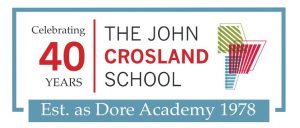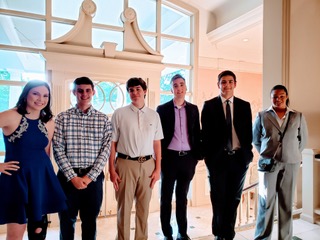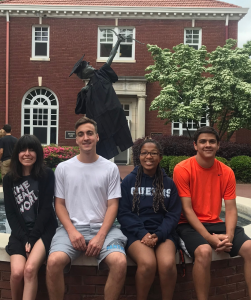By Smarty guest blogger Charles Heard, Director of Upper School, The John Crosland School
Forty-one seniors have graduated from The John Crosland School since we moved to our current campus in 2012. In my role as Upper School Director, I have supported students, families, and faculty as they carry out the school’s mission of preparing for college and life after graduation. We have prepared students for a variety of post-secondary options including major universities, private colleges, schools with a high level of support, community colleges, and other specialized programs. We are very proud of the hard work and determination our students have demonstrated to earn the opportunity to continue their education and become independent adults.
In my professional learning this past school year, I focused on current research in the field of adolescent neuroscience. Age of Opportunity: Lessons from the New Science of Adolescence, by Laurence Steinberg, Ph.D., presented not only current research about the adolescent brain and the length of adolescence, but also challenged the reader to rethink what college preparation should entail, and how the development of executive function and emotional regulation are key predictors in teens and young adults becoming successful, independent adults. Essentially, Steinberg argues, adolescence is longer now, both starting earlier in a child’s life and extending into young adulthood. During this time the brain is highly changeable. Changes in the limbic system early in puberty arouse strong emotions that motivate actions, like an accelerator on a car. Later development in the prefrontal cortex helps an adolescent regulate those emotions and make good decisions, acting like the brakes.
The ability to regulate emotions and make good decisions is at the heart of executive function. Crosland students frequently experience delays in the development of executive function, meaning our graduates’ minds are still in a period of great change and development and will be for many years into their mid-twenties. Rather than thinking of our mission as preparing our students to enter college, this new research leads me to reimagine our mission as preparing students to finish college. We began thinking about how we could support our Crosland graduates with developing their executive functions even in college.
Shortly before graduation, we presented the seniors with the option of participating in a program of extra support during their freshman years at college. I detailed some of the new things they may encounter at college, like increased freedom and responsibility, more time management demands, and new and changing relationships. We offered to check in with our graduates either quarterly or each semester during their first year to support them with anything regarding academics, executive function, social and emotional well-being, or just to stay connected. Students chose a trusted teacher or administrator to contact them by phone or email. All of our graduates decided to participate, and we look forward to getting updates about how their first year in a new setting is going. One graduate, who will be attending Belmont-Abbey College, said that he will also make frequent return visits to Crosland. He said we will be seeing a lot of him!
We hope this program of added support benefits our graduates even after they grow into college students and employees. There is so much opportunity to focus on executive function, self-regulation, and self-advocacy for all adolescents in Crosland’s Upper School, and we are excited to help or students develop these traits and become successful, independent people!
The John Crosland School
5146 Parkway Plaza Blvd.
Charlottte, NC 28217
704-365-5490 ext 709
Website
Blog
Facebook
Instagram: @johncroslandschool and @dogsofcrosland
Twitter: @croslandschool






